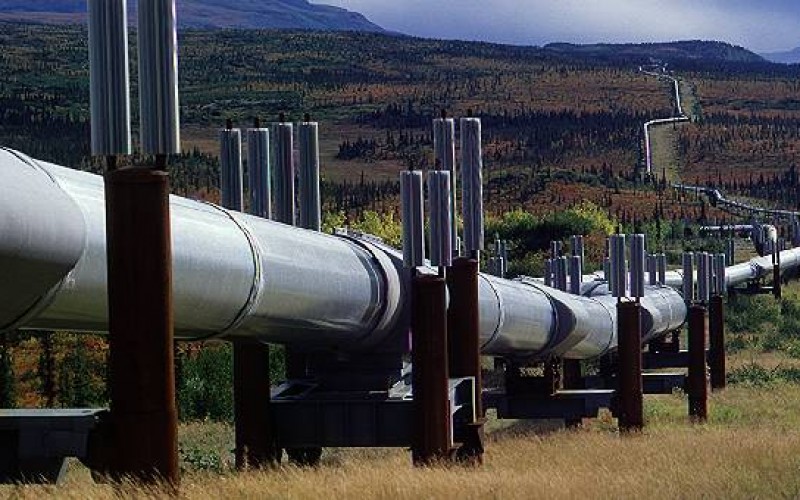Turkmenistan has emerged as a potential supplier of liquid natural gas (LNG) to Europe as the EU desperately searches for an alternative to Russian energy. The prospect of European exploitation of its resources may appear to test China’s dominance in the region.

Dependence on Russian energy represents an untenable predicament to the European Union, a situation that has led to the EU setting its sights on resource-rich Turkmenistan to circumvent Russia altogether.
Although a plan to transit liquid natural gas from Turkmenistan to Europe has been bandied about in the past, the urgency of putting this plan into action has never been greater. Despite the myriad of economic, geographic, and geopolitical obstacles, Turkmenistan still represents a viable alternative to Russia.
The question is — how does energy-hungry China feel about the prospect of the European Union exploiting Turkmenistan’s resources? The answer? Most likely indifferent.
According to Sara Lain of the Royal United Services Institute in London, European players in Turkmenistan may be unable to compete with China’s prevailing business model. China’s approach to foreign direct investment involves the distribution of attractive loans devoid of any social or political conditions, a very enticing offer for authoritarian governments.
With these loans repaid to China via energy exports at highly favourable rates, Beijing’s application of this model in Turkmenistan assures that Ashgabat will remain firmly under China’s influence for the foreseeable future. Ashgabat has expressed interest in supplying the EU with upwards of 30 bcm of LGN.
This prospect, however, in no way weakens China’s dominance of Turkmenistan. For starters, Turkmenistan’s LNG reserves can easily supply both Europe and China.
More importantly, unlike China, the EU is not in a position to dole out generous loans in exchange for energy. This means that even if the EU were able to finance the construction of a pipeline, Turkmenistan’s financial obligations would be minimal at best, leaving China’s regional dominance unscathed.
China would have no economic or geopolitical impetus to actively impede Europe’s entrance into Turkmenistan’s energy scene. In fact, China may stand to gain from the EU’s penetration of Turkmenistan, and that is because Europe’s gain would come largely at Russia’s expense.
Help stabilize a major supplier of LNG
China’s most prominent economic and geopolitical rival in Central Asia is, of course, Russia. However, as of late, China has established itself as the preeminent power in the region. This elevated position comes replete with both advantages and disadvantages for Beijing.
Governments which were once in the Kremlin’s back pocket now look to China for direction. Central Asian governments have come to the realization that their association with Russia through the Eurasian Economic Union (EEU) is a risky proposition.
Russia’s economy has buckled under the weight of US and EU backed sanctions. Furthermore, a partnership with Russia entails a laundry list of political obligations to Moscow, with Ukraine serving as a constant and frightening reminder.
Even contrasted with China’s now tempered economic growth, Beijing is the obvious choice for Ashgabat. It would appear, then, that Turkmenistan’s pivot towards China is organic, despite its historical ties to Russia.
This is not to say that Central Asian governments are indifferent over China’s growing dominance; rather, China represents the least intrusive and threatening vehicle to development.
China’s absolute dominance in Central Asia may backfire
That said, China does not appear to harbor any ambition to emulate its Russian predecessors in the region. Having authoritarian regimes in Central Asia that are completely dependent on China would most likely, in the long term, backfire on Beijing.
Absolute dependency on a foreign entity could serve to destabilize Turkmenistan’s authoritarian regime, and compromise the integrity of a strategic energy partner. Signs of danger have already begun to emerge. LNG exports in 2015 have been dramatically hurt by Russia and Iran’s sharp reduction in demand. With an economy wholly dependent on energy extraction, Turkmenistan’s government may see its coffers quickly depleted.
Despite the massive quantities of LNG exported to China, Ashgabat cannot rely on Beijing to keep its economy afloat. Much of the revenue earned from gas exports to China is funneled directly into repaying Ashgabat’sdebt to China.
Turkmenistan needs to diversify its client base, not just for its own security and stability of the current regime, but as a means of protecting China’s long term economic and energy interests. Europe could serve as a convenient and stable replacement to Russia and Iran.
Promote security cooperation between the EU, Turkmenistan, and China
Relations with Europe would not only serve to stabilize Turkmenistan’s long-term economic stability — they would also help contribute to regional security. With the prospect of a more desperate and aggressive Russia, in addition to the myriad of Islamist organizations operating with relative impunity throughout the region, China alone cannot serve as a sufficient counterbalance to Central Asia’s many emerging threats.
A western pivot will go a long way in stimulating greater European and American security and counterterrorism cooperation in the region.
Weaken Russia’s bargaining position
By encouraging a pipeline between Turkmenistan and Europe, China would gain significant leverage over Russia. Despite China’s dominance in the region, Beijing will continue to be reliant on Russian LNG for the foreseeable future.
In the meantime, Turkmenistan represents Europe’s most viable source of LNG. By helping Europe to facilitate an alternative source of energy, China can deny Russia a major customer. This would leave Russia increasingly dependent on China as a major buyer of Siberian LNG, allowing Beijing to aggressively negotiate favorable energy prices.
China has much to gain by cooperating with the European Union with regards to Turkmenistan’s LNG. The essence of China’s Silk Road initiative is to cultivate favorable relationships and encourage economic and security integration throughout Central Asia and into Europe.
By facilitating the transit of LNG to Europe, China can effectively strengthen its position in both Central Asia and the European Union.
sourche: http://globalriskinsights.com/2015/05/why-china-should-encourage-a-pipeline-from-turkmenistan-to-europe/
Δεν υπάρχουν σχόλια:
Δημοσίευση σχολίου